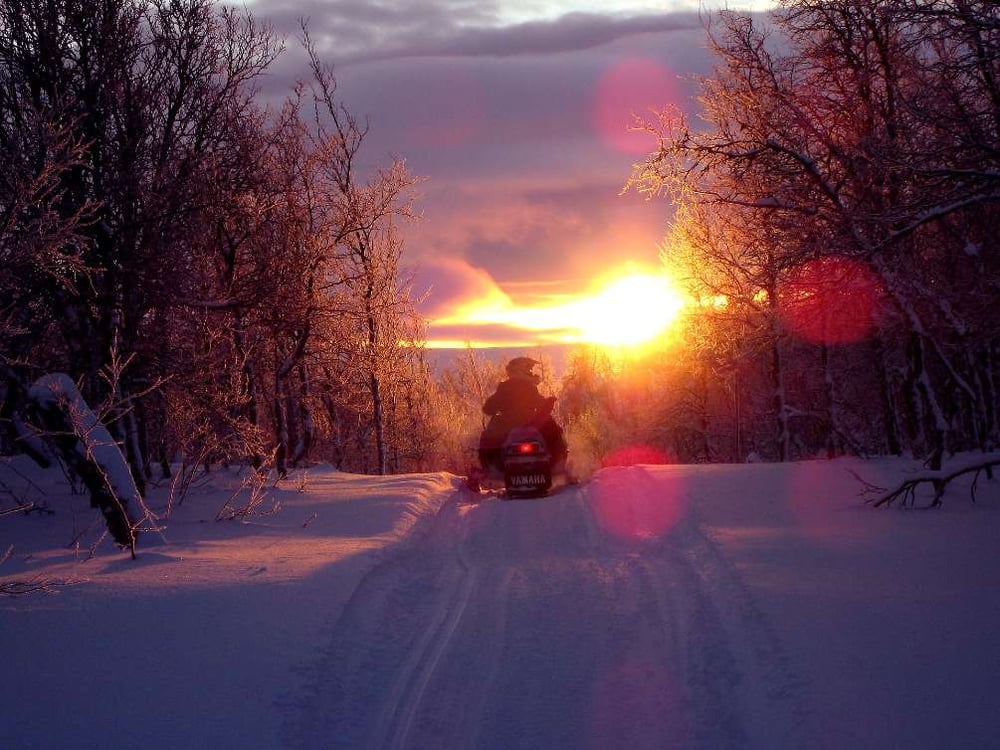While cars and trucks often receive the spotlight when it comes to drunk driving, Wisconsin’s OWI laws encompass all motor vehicles including snowmobiles, ATVs, and other recreational vehicles less commonly found on traditional roadways.
Particularly relevant during the winter season, those who enjoy snowmobiling should have a good understanding of the state laws pertaining to operating recreational vehicles under the influence of alcohol.
Operating on Public Land Versus Private Land
Since snowmobiles and other recreational vehicles are more frequently found on trails and open land rather than roadways, it’s important to know what laws you as an operator are subject to depending on where you are at any given time.
Snowmobile operators who use public land like trails, rivers, and lakes are subject to the same laws as they would be on any public roadway in a car, truck, or other motor vehicle. They can be fined for operating a snowmobile under the influence with a BAC level of .08% or above.
Simply by using public lands for snowmobiling, you automatically consent to give either a breathalyzer or blood test if needed by an officer. Unlike OWI infractions involving conventional cars and trucks, snowmobiling infractions do not affect the operator’s driver’s license.
When operating a snowmobile on private land, you are not required to submit to any chemical testing unless another criminal offense has been seen to occur during your ride. As with drivers on public land, infractions on private land have no effect on your driver’s license.
Fines and Penalties Associated with Snowmobile DUI/OWI in Wisconsin
When it comes to the specific penalties you could face with snowmobiling OWI, fines can range between $125.90 and $2000 depending on how many similar infractions you have on your record and the nature of the incident.
In addition to fines, drivers found to be operating under the influence of alcohol may also have their privilege to operate a snowmobile revoked by a court if the infraction demonstrates exceptional negligence and reckless behavior on the part of the driver.
Recently, advocacy groups in the state have petitioned to change the law to reflect a more severe penalty, like arrests, injuries, and fatalities remain high, especially compared to recent figures. The general goal of these petitions is to enact legislation making snowmobile OWI infractions similar if not identical to those of “regular” road vehicles.
FREE 10-Minute Consultation
Given the consequences of an OWI, no matter what vehicle one was driving, it's more than worth it to take the time to find the best attorney you possibly can—one that has handled and won cases like yours before.
Attorney Patrick Stangl explains why you should never give up hope when fighting repeat DUI/OWI charges in Wisconsin:
Criminal Defense Lawyer Patrick J. Stangl has been aggressively fighting to protect the rights of drivers accused of OWI and other drunk driving charges for over 30 years. He remains committed to protecting the innocent against OWI charges across Wisconsin.
If you need help to fight drunk driving charges in Wisconsin, Attorney Pat Stangl is happy to offer you a FREE 10-minute consultation to discuss your case and explore options for your defense against OWI, DUI, DWI, PAC, BAC, or other criminal charges.
If you’re in need of a criminal defense attorney with years of experience with OWI-related cases in Wisconsin, contact Attorney Patrick Stangl today.
Stangl Law Offices, S.C.



